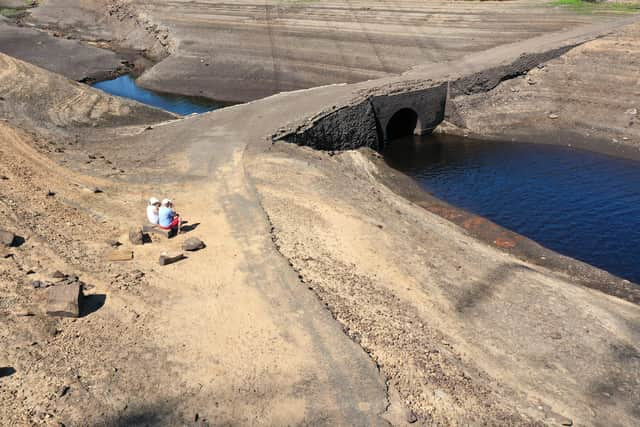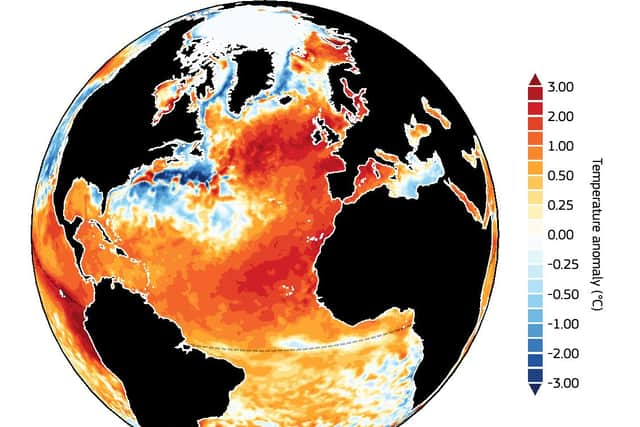‘Unprecedented’ hottest week on record due to climate change is ‘worrying’ for the planet, scientists warn
and live on Freeview channel 276
The world has had its hottest week on record but more record-breaking figures are expected which is “worrying news for the planet”, scientists have warned.
Director of climate services at the World Meteorological Organisation (WMO), Professor Christopher Hewitt, said “we are in uncharted territory” as “El Nino develops further and these impacts will extend into 2024”.
Advertisement
Hide AdAdvertisement
Hide AdThe hottest week on record comes amid a string of records that have concerned scientists about how quickly the planet is warming due to climate change.
Last month was the hottest June on record, globally and for the UK, while ocean temperatures have been at their highest ever recorded since March.
The extreme weather is being driven by El Nino, the irregular periodic variation in winds and sea surface temperatures over the tropical eastern Pacific Ocean.
El Niño is declared when, on the long-term average, temperatures in the tropical eastern Pacific rise by 0.5C.
Advertisement
Hide AdAdvertisement
Hide Ad

It can lead to severe climatic changes which have already been seen across the continent as Canada has been suffering from its worst ever wildfire season while punishing heatwaves have swept over India, China and southern Europe.
Professor Hewitt said: “The exceptional warmth in June and at the start of July occurred at the onset of the development of El Nino, which is expected to further fuel the heat both on land and in the oceans and lead to more extreme temperatures and marine heatwaves.”
Scientists from Copernicus said the North Atlantic temperature had been “off the charts”, with the Met Office saying the marine heatwave around the UK had “amplified” land temperatures to create the record-breaking June.
The Met Office also calculated that the chance of beating the previous June record had at least doubled since the 1940s and that the record could end up surpassing itself every other year by the 2050s.
Advertisement
Hide AdAdvertisement
Hide Ad

Dr Michael Sparrow, head of WMO’s World Climate Research Department, said: “The temperatures in the North Atlantic are unprecedented and of great concern.
“They are much higher than anything the models predicted. This will have a knock-on effect on ecosystems and fisheries and on our weather.”
Sea ice in the Antarctic is also at a record low at 17% below average which has broken the previous June record by a “substantial margin”, the WMO said.
There was 2.6 million km2 of ice lost compared to the long-term average since 1979 and almost 1.2 million km2 less than the previous record set last year.
Advertisement
Hide AdAdvertisement
Hide AdThe Met Office said this is thought to be partly down to unusually low atmospheric pressure and El Nino combining with another meteorological effect, the Southern Annular Mode, which both exert strong influence on Antarctic sea ice extent via surface winds and sea surface temperatures.
Comment Guidelines
National World encourages reader discussion on our stories. User feedback, insights and back-and-forth exchanges add a rich layer of context to reporting. Please review our Community Guidelines before commenting.
